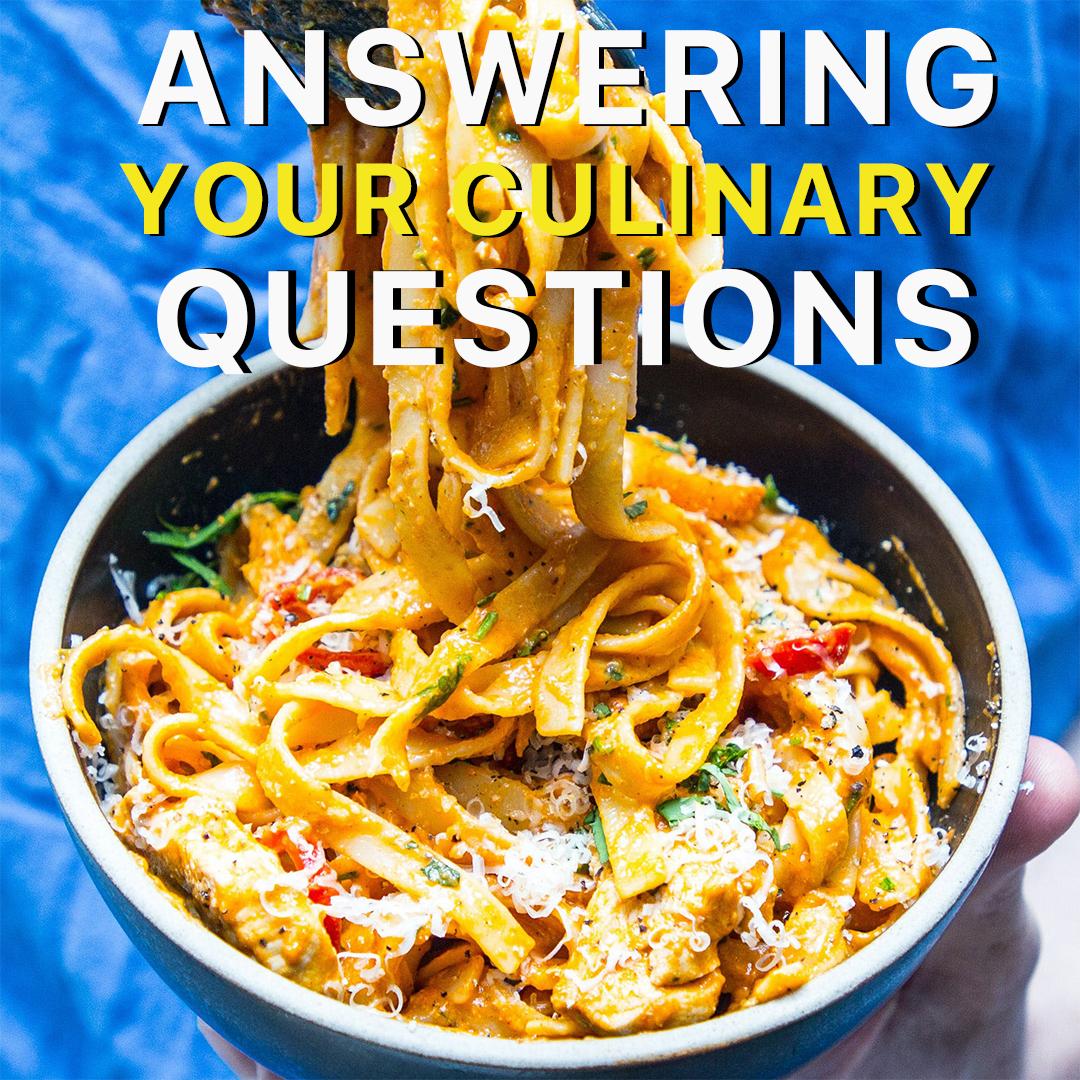Why are you so obsessed with orzo?
Is Ben single?
How can I get a job as an official MOB taste tester?
Those are just a few of the questions we get asked on a daily basis here at MOB Kitchen. Although the answers to those questions (because it’s delicious; no; and sorry you can’t, that’s not a job) are rather straightforward, there’s a lot of frequently asked queries we get which we thought we’d take the time to provide you with more thorough answers to. The most common culinary questions that you want to be answered.
Do make sure to take a lot of these answers with a pinch of salt as, when it boils down to it, there’s rarely a single right or wrong answer when it comes to cooking. These are just the most sensible responses we can think of to help you out with some of your most sensible questions.
We hope that these will help solve any culinary questions you might have and – if you’ve still got any questions you want to be answered – make sure to get in touch so we can work on answering those in the future.
Without further ado, here are the answers to some of your most frequently asked cooking questions.
